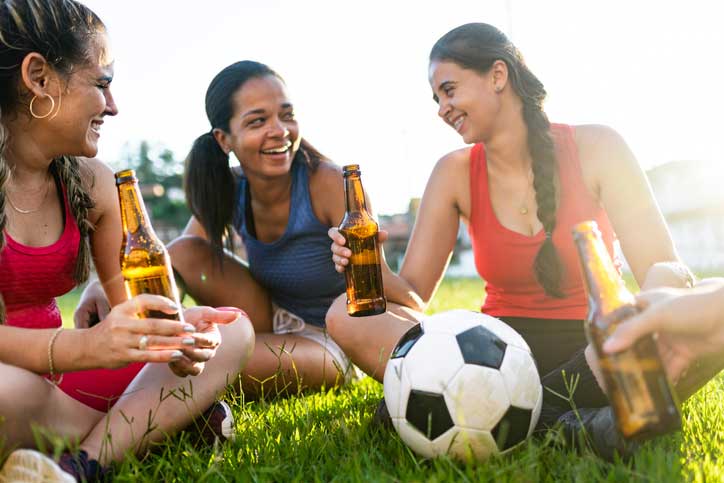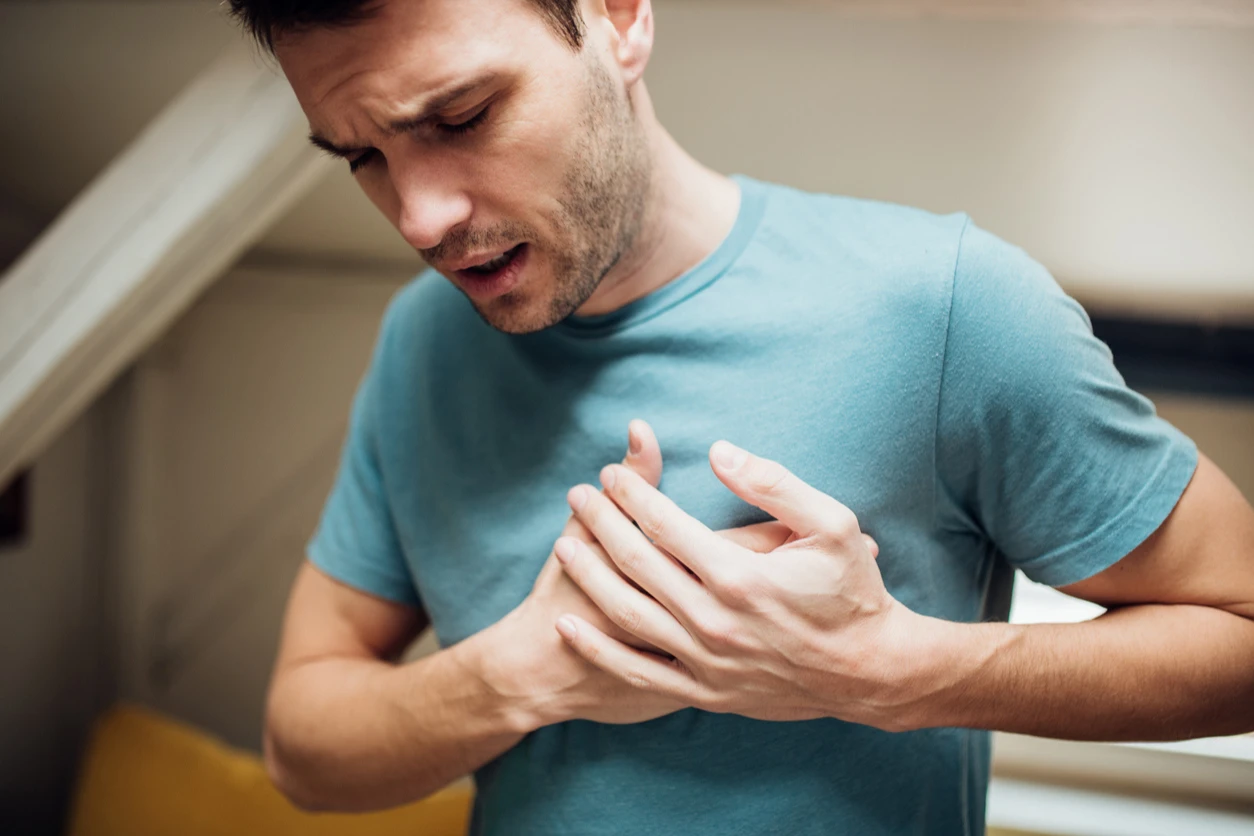
You don’t have to consume huge amounts or have a full-blown alcohol addiction in order for alcohol to negatively affect your physical fitness, however. Whether you are playing competitive sports or simply want to increase your fitness and overall health, reducing your alcohol consumption or quitting altogether can play a major part in your success.
The relationship between alcohol and fitness
Alcohol and fitness tend to have an inverse relationship: the more you drink, the more it is likely to have a negative effect on your overall health and reduce your physical fitness. Many alcohol-related illnesses can affect your mobility and ability to train or exercise. Alcohol can lead to risky behaviour and poor decision-making, increasing the risk of being involved in an accident or even violence, which can also impact your fitness. Drinking also affects numerous bodily functions in negative ways. It can sap both your motivation and ability to exercise and maintain physical fitness.
On the other side of the coin, improving your fitness can prove a great motivator if you are trying to reduce the amounts of alcohol you drink. People undergoing alcohol addiction treatment will generally be encouraged to be physically active and to take part in gentle exercise – or more challenging exercise if it is safe to do so. Increasing physical fitness also tends to be good for your mental health and general wellbeing, which can be important in your recovery journey.
The effect of alcohol and fitness on performance
Alcohol misuse can have a wide range of serious negative effects on your physical and mental health. It is linked with many different illnesses, including liver disease and several types of cancer. According to the leading charity Alcohol Change UK, alcohol misuse is the biggest risk factor for death, ill-health and disability among 15-49 year-olds in the UK, and the fifth-biggest risk factor across all ages.1
Studies show that alcohol consumption can also affect athletic performance in a number of ways. The acute use of alcohol – in other words, heavy drinking – can affect motor skills, hydration status, aerobic performance and elements of the recovery process. Chronic or long-term drinking, meanwhile, can lead to difficulty in managing body composition, nutritional deficiencies, and depressed immune function.2 All of these things taken together can have a big impact on performance, as well as training and recovery.
It is never a good idea to exercise or participate in sports after drinking alcohol. Being intoxicated can obviously affect elements of performance such as hand-eye coordination, reaction time, motor skills, balance and judgment. It can also increase the risk of injury, especially when engaging in high-impact activity. Drinking alcoholic beverages prior to exercise, training or competing is not as common as drinking afterwards, which can affect your performance in the long run by hampering recovery.
Whatever level you are at and whether you are training for yourself or competing against others, we can provide vital support if you are concerned about your drinking.
Alcohol, dehydration and fatigue
One of the biggest noticeable effects of alcohol is dehydration. There are a number of reasons why alcohol can cause dehydration, with one of the main ones being the suppression of the production of a substance called vasopressin.4 This is an anti-diuretic hormone that helps regulate the amount of urine made by the kidneys. The result is a diuretic effect, meaning you urinate more than you should. Water is flushed out of the body faster than the alcohol is processed, which is why it is advisable to drink water if you are drinking alcohol.
Dehydration can contribute to hangovers and your muscles can become stiff and cramped. You can even start to lose muscle mass through long-term drinking – a condition known as alcoholic myopathy. Alcohol-related dehydration can be even worse when exercising, as you will tend to lose more moisture through sweating.
How alcohol affects soreness and muscle repair
Alcohol is also known to have a negative impact on sleep, the way our bodies recover from injury, and the production of hormones associated with muscular growth.5 All of these things can have a big impact on training and achieving fitness goals, as well as leaving you feeling sorer for longer.
Alcohol’s impact on weight-loss goals
Alcohol is extremely calorific and the calories it contains are generally known as ’empty calories’, meaning they do not provide any nutritional value. Did you know that a standard glass of wine contains more than 130kcal – or about the same as three Jaffa Cakes? A pint of beer, meanwhile, contains closer to 240kcal or the equivalent of a standard-sized Mars Bar. Taken individually that might not seem too bad but the calories can soon add up. Drinking a bottle of wine each week is equivalent to eating 48 Big Macs per year while five pints of lager a week adds up to the annual equivalent of eating 221 doughnuts.3 All these empty calories can not only frustrate weight loss and fitness goals, they can actively lead to weight gain. Mixers can add yet more calories and many people eat more junk food and other unhealthy options when they have been drinking. Others may eat too little, which can be just as unhealthy and many alcohol treatment programmes will also address nutrition.
Help for alcohol addiction at Action Rehab
Drinking excessively can have a huge impact on your physical fitness and many other aspects of your life. It can also affect your mental health, ruin relationships and impact your work or education. Left untreated, a serious alcohol problem can cause untold damage so it is always best to seek professional help, whether that is at an alcohol rehab or elsewhere. At Action Rehab we have a wealth of experience in finding the right addiction treatment for people looking to make a long-lasting recovery. If you are suffering from an addiction or problem drinking, contact us today to find out how we can help.
Posted on Friday, April 22nd, 2022 at 1:49 pm in Addiction, Alcoholism.






 Call Us
Call Us Contact Us
Contact Us